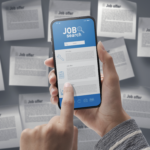It’s no secret that AI is revolutionising the world of work—and beyond—in ways we would never have thought possible. For years now, AI has been beavering away in the background, removing inefficiencies and boosting productivity. From automating customer interactions to alleviating the burden of repetitive tasks and forecasting sales, the applications of AI are extensive.
And it’s not going anywhere.
In fact, this week, reports of a new Microsoft AI tool which could remove the need to attend meetings have hit headlines. Microsoft 365 Copilot will summarise meetings held in Teams for anyone who chooses not to attend. It is hoped the tool will facilitate productivity and reduce ‘drudgery’. But is this too heavy a reliance on technology? And will other aspects of the workplace, like collaboration, teamwork, and interpersonal relationships suffer as a result?
With more and more remote working since the pandemic, the benefits of the social aspects of water cooler chit-chat are in decline. Four in 10 remote workers are reportedly feeling ‘lonely’, and if tools like this are widely adopted, that’s a number likely to grow.
But what is a workplace’s stance on this new technology? Thea Watson, Chief Growth Officer at BrightHR, shares her insight:
“AI is absolutely something to be embraced in the world of work, and its many successes have already been highlighted by its use within dozens of sectors. But the challenge lies in adopting it correctly.
“A recent survey* highlighted that one-third were currently utilising AI with more planning to roll out adoption in the near future. Of that number, 40% were using it for admin, 35% for creative writing, and 22% for their internal comms.
“There’s no denying that AI can boost creativity and productivity. But when it comes to having AI attend a meeting instead of yourself? This could be a handy new development in the busy world of work which would mean information can easily be conveyed from meetings when it’s just not feasible or possible to attend. But there will be downsides, and I would warn anyone to not depend too strongly on this—or any other AI tool for that matter.
“There is a risk that such a virtual assistant may not be able to fully understand the context and nuances of a meeting, leading to misunderstandings and miscommunication. Additionally, it may not be able to handle unexpected situations or participate in discussions in the same way that a human attendee could.
“A key thing to remember is that the workplace boils down to more than just output. There’s collaboration to consider, employee wellbeing, teamwork, camaraderie amongst colleagues for a healthy company culture… These are all aspects of a workplace that can potentially be strained when your team all works remotely. And without the interaction that’s provided in meetings, it’s only likely to become even more of a challenge.
“In my opinion, it would be wise to consider using AI as a helpful tool rather than solely relying on it. It’s important to use it in moderation so that you don’t become overly dependent on it and lose valuable skills like socialising or writing. It’s crucial to maintain ownership of your work and not let the AI take over. So, make use of AI. But ensure that you’re in control.
“It’s important to keep in mind that widespread use of AI comes with significant risks. Before utilising any AI platform, businesses should conduct a thorough evaluation of the technology to identify any potential risks. This includes examining data protection protocols from both a data management and security standpoint, and considering your internal security and protection from cyber threats.
“Next, understand that human input is vital. Despite the fact AI has come on leaps and bounds in recent years, there are still many inaccuracies, so be mindful of this and the source of information. AI is great for speed of course, but everything produced by it WILL need a thorough check by a professional. Especially when you’re handling legal information.
“Tech like this will likely cause those working in admin-based roles some concern about whether they will be displaced. But given that that human element is still so essential, such tools may serve as a supplement to a role, rather than a replacement.”
*BrightHR









